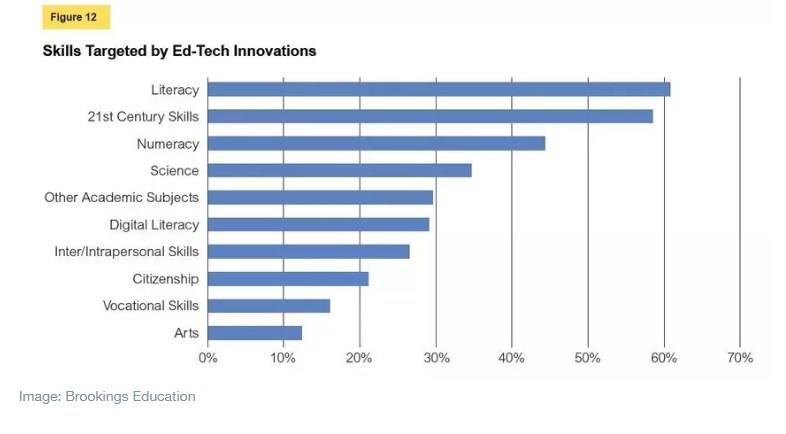by Utkarsh Amitabh*
Lynda Gratton and Andrew Scott, authors of The 100-Year Life: Living and Working in an Age of Longevity, offer three features that will define work in the 21st century.
First, people are likely to live much longer. Being a centenarian will soon become commonplace. Second, the lifespan of organizations will significantly reduce, so long-term employment will become a thing of the past. Third, the concept of retirement will fade away, partly due to financial reasons and partly out of choice.
Combining all these factors, it is easy to see how one might have to spend several years learning and unlearning in order to build a viable portfolio of careers. But if higher education institutions aren’t doing their job in teaching us, what are our alternatives?
The great unbundling
Historically, education offered an amorphous bundle of training in core skills, soft skills and critical thinking, along with an opportunity to network and also to demonstrate our value to employers through a recognized qualification. What we are witnessing now, however, is a “great unbundling” of education, with different companies and communities attempting to capture one part of the bundle. For example, the online Lambda School is focused only on core-skill building, making people of all backgrounds ready for computer science careers. Their Income Share Agreement (ISA) model charges students nothing for their tuition until they land a high-paying job, whereby they pay back 17% of their wages for two years. If they don’t land one within 60 months, the fee is waived. Thus we can see that Lambda has a single-minded focus on core skills, and pays much less attention to value demonstration, soft skills, networking and the other aspects of a traditional education.
Changing focus areas
The unbundling of education has brought about four tectonic shifts: career choices driven by return on investment (ROI), a move towards lifelong learning, shorter durations and new business models.
The first is ROI-oriented specializations. Following recessions and emergencies such as the one in which we find ourselves, there is usually a spike in ROI-driven career decisions. A whopping 80% of students surveyed at UCLA said that education for them was means towards employment. However, only 50% of US college presidents (a position equivalent to a chancellor in the UK) shared their view. Clearly there is a mismatch between what students want and what traditional universities offer.
Students want to learn tangible skills such as coding, marketing and sales in a condensed timeframe. You could argue that this is short-termist thinking and will one day backfire, but the demand for these skills at present is undeniable.
The second shift we are witnessing is the move towards lifelong learning. The traditional model was to conclude all education, including MBA/master’s programmes, as quickly as possible, and then apply that learning to jobs. This model no longer works today. The new normal is to have periods of study and learning interspersed throughout one’s work life.
This is a huge opportunity for entrepreneurs and investors. The 26-35 year olds looking for self-improvement and lifelong learning constitutes the largest opportunity in China, much greater than primary and secondary education or test preparation. While this spending analysis is focused on China, many of the conclusions will hold for the rest of the world.
The third shift we are seeing is that students want to pursue courses of shorter duration. Because of the focus on lifelong learning, students are keen to spend shorter duration during one block of learning. Make School, which also has an offline campus and specializes in project-based study, offers a two-year bachelor’s degree with very high employment rates. There are many similar examples. The rationale for students is that, if they have to go to school multiple times, then each course of study should not be too long. People want to make their time count and capitalize on the latest trends.
Lastly, we are witnessing a shift in business models. The growing popularity of ISAs reflect changing attitudes, whereby students are not willing to hand over huge, one-time payments upfront. This not only changes the student financing market but also forces educational institutions to focus on student outcomes, specifically their employment.
Waves of disruption
The unbundling of education will bring about disruption in multiple waves.
The first wave will include channels of learning hard skills with direct employment prospects. Think of coding bootcamps, Massive Open Online Courses with certifications and nanodegrees, for example. These are high-arbitrage opportunities, but very few such disruptions have worked at scale so far.
A big reason that people choose to go for higher studies is for networking, and that is where the second wave of disruption is likely. Alternatives to traditional networking in the form of coworking spaces, accelerators, private networks, curated associations and peer-mentoring communities are likely to be another area of massive disruption.
Along with hard skills and networks, there is likely to be a huge push for soft skills. Several innovations can be expected in this space in the coming years. The ones that will work are likely to be able to demonstrate tangible benefits for students and young professionals. There might not be a need to go to college to pick up soft skills or network.
Studying or working at an elite institution/organization signals competence to our network. It also increases our perceived social value. The fourth wave of disruption is likely to be the emergence of organizations where membership, association or affiliation signals equal or greater competence.
The renowned theorist of disruptive innovation Clayton Christensen famously said that 50% of all colleges will go bankrupt in the near future. The COVID-19 crisis has definitely pushed many closer to collapse. The ones that survive will adapt to the great unbundling of education and combine two essential components of learning in the 21st century: AI and communities.
AI + community = future of learning
The factory-inspired, 19th century model of education made sense when there were severe limitations on teaching resources. But AI can help us overcome such constraints by leveraging three of its defining features – perception, recognition and recommendation – and thereby creating personalized learning for students and more free time for instructors.
Let’s try and visualize an AI-powered higher education experience. It will operate on four planes: virtual teaching, learning assessment, opportunity matching for internships and jobs, and mentoring from peers and experts.

Imagine Sally sitting in Beirut. She is enrolled in a distance learning program that brings together leading data science professors from around the world and awards a degree valued by the most coveted employers. She attends lectures in a coworking space. There is a video camera at the front of the room that uses facial recognition and posture analysis not only to take attendance but also to figure out if Sally is paying attention. Maybe she is unwell and not able to concentrate. All this data is fed into her student profile and a customized homework is created for her. Sally completes her assignment with some help from a peer mentor with whom she is matched based on her learning needs. They build a friendship and, over time, start working on complex data sets together. They figure out a way to optimize an algorithm that is valuable to one of the sponsors of the programme. After several rounds of back and forth, they decide to patent their solution and work on their idea independently. They move from a full-time degree programme to a flexible-part time option designed for entrepreneurs.
Key challenge
The above scenario above might sound compelling, but it is bound to fail in the short term. Today, there are innumerable digital learning platforms powered by AI that are struggling to find customers. Even when students sign up, only 3% end up completing course requirements.
In fact, research presented by Dr Susan Dynarski at the University of Michigan makes it abundantly clear that, while online education works for mature learners, it can harm academically weak students and compromise on conceptual learning. Clearly, the AI-powered education technology model is missing something critical. That’s why there is urgent need to complement AI-based learning tools with the power of communities. This approach will humanize the way we think about both higher education and technology.
No matter how sophisticated our gadgets become, it is hard to relate to shiny, dark screens. All of us have a fundamental need to belong, learn and share. We need meaningful communities, because they are force multipliers. They make learning fun and create a peer-to-peer accountability mechanism that shapes a culture of learning. AI enables personalization at scale.
Only by combining both AI and communities will higher education be relevant and prepare students for the adventures of the Fourth Industrial Revolution. The good news is that traditional educational institutions aren’t the only ones that can create this customized offering. The unbundling of education means that far more players are now competing in the market. This is likely to democratize learning and make it accessible to more than privileged few who can afford to pay a quarter million dollars for an advanced degree.
*Global Shaper, New Delhi Hub, Network Capital
**first published in: www.weforum.org




 By: N. Peter Kramer
By: N. Peter Kramer
